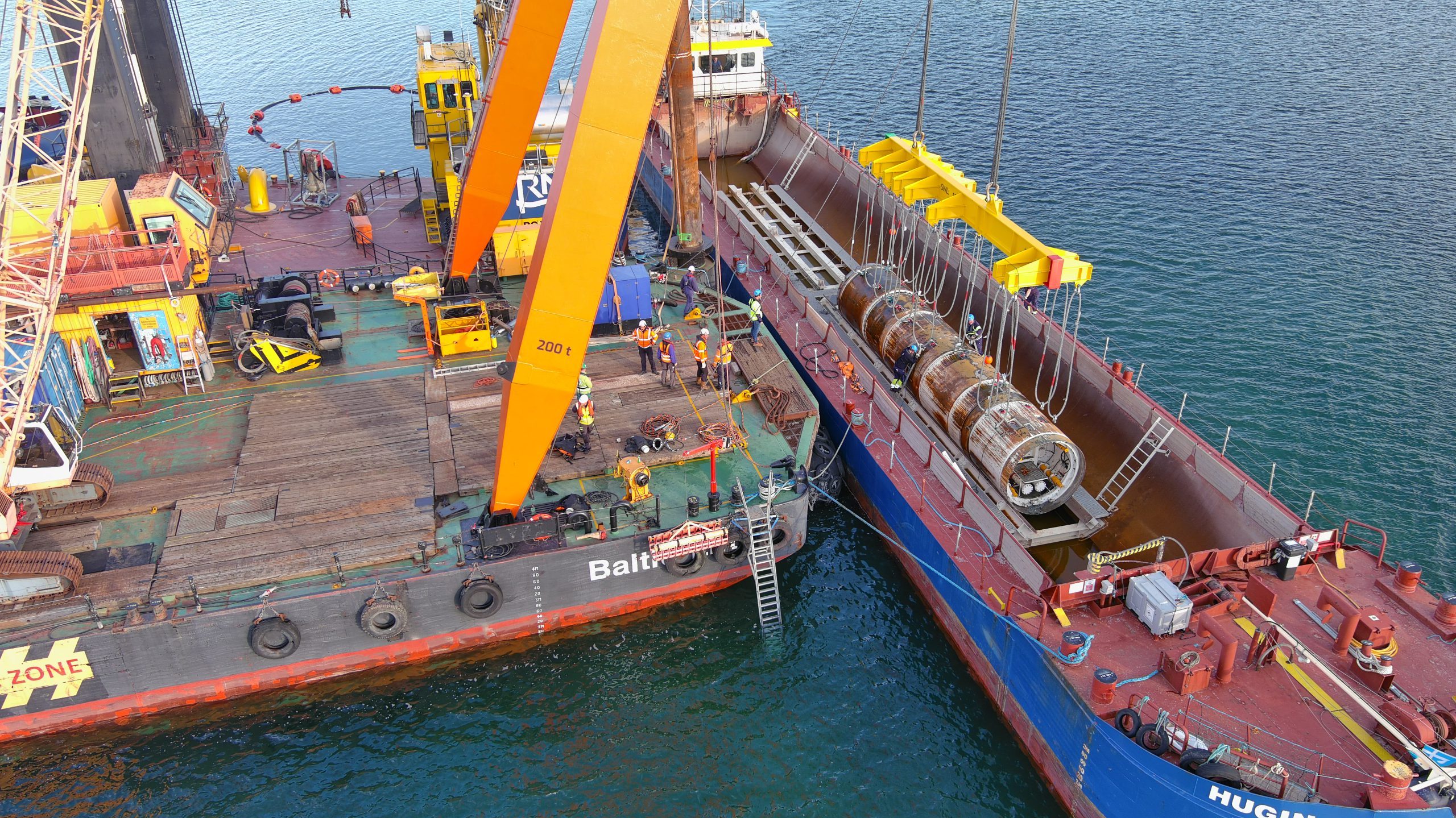Nordics, Baltics Tighten Security at Energy Installations After Baltic Sea Pipe Burst
(Reuters) — Norway and Lithuania tightened security at onshore energy installations following Sunday's gas pipeline gas leak in the Baltic Sea, while Finland recommended energy operators to be more aware of security.
On Tuesday, Helsinki said damage caused on the Balticconnector between Estonia and Finland was due to "outside activity" and that the cause was being probed, stoking concern over regional energy security and pushing gas prices higher.
"We have increased our focus on preventive patrols at oil and gas installations in our area," operations chief Helge Blindheim at Norway's West police district told daily BA.
The district is home to one oil terminal, Mongstad, and two processing gas plants, Kollsnes and Kaarstoe.
Norwegian police is responsible for the security of onshore installations, such as gas processing plants and oil terminals, while the military is responsible for offshore platforms and pipelines.
The military has increased Navy patrols and is receiving aid from NATO allies to protect offshore platforms following the explosions on the Nord Stream gas pipelines in September 2022.
Norway is Europe's largest gas supplier and Western Europe's largest oil producer, exporting more than 120 billion cubic meters (bcm) of gas in 2022, mainly via a system of some 22 pipelines spreading over more than 8,800 km (5,470 miles).
Finland has also instructed energy operators to be more security aware as a result of the incident in the Baltic Sea.
"Yesterday (Tuesday) we urged companies critical to security of (energy) supply to raise their own preparedness level, especially with regard to critical infrastructure," director Janne Kankanen from Finland's National Emergency Supply Agency told a press conference on Wednesday.
"Special attention is now requested from all operators to protect this critical infrastructure."
Similarly, Lithuania, which neighbors Estonia, raised security alert levels at its Klaipeda liquefied natural gas import terminal, gas pipelines and other strategic energy assets as a result of the damage on the Balticconnector gas pipeline.
Related News
Related News

- Keystone Oil Pipeline Resumes Operations After Temporary Shutdown
- Freeport LNG Plant Runs Near Zero Consumption for Fifth Day
- Biden Administration Buys Oil for Emergency Reserve Above Target Price
- Mexico Seizes Air Liquide's Hydrogen Plant at Pemex Refinery
- Enbridge to Invest $500 Million in Pipeline Assets, Including Expansion of 850-Mile Gray Oak Pipeline





Comments